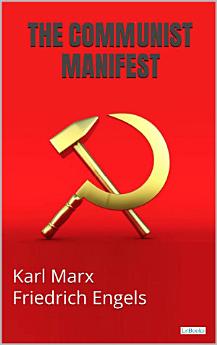The Communist Manifest
Acerca de este libro electrónico
Since its publication, the Manifesto has served as a foundational text for revolutionary movements around the world. Its powerful rhetoric and sharp critique of economic inequality have ensured its continued relevance far beyond the 19th century. The work calls for the abolition of private property, the end of class divisions, and a radical restructuring of society based on collective ownership and equality.
The enduring significance of The Communist Manifesto lies in its bold challenge to systems of power and its vision for a more equitable future. By critiquing capitalism and proposing an alternative rooted in solidarity and justice, it remains a cornerstone of political philosophy and socialist thought.
Acerca del autor
Karl Marx was a German philosopher, economist, and social theorist, widely recognized as one of the most influential figures in modern thought. Born in Trier, in what was then the Kingdom of Prussia, Marx is best known for his analysis of capitalism and for developing historical materialism. His work laid the foundation for scientific socialism and had a profound impact on political and social movements throughout the 20th century. Although he was criticized and marginalized during his lifetime, his ideas would later transform the course of modern history.
Marx's work deals with themes such as class struggle, labor alienation, and the contradictions inherent in the capitalist system. In collaboration with Friedrich Engels, he wrote The Communist Manifesto (1848), a seminal work calling for the unification of workers around the world and the radical transformation of society. His most in-depth analysis of capitalism is found in Capital (1867), where he explains how surplus value extracted from labor is the source of profit in capitalist economies.
Marx's thought was revolutionary for its time. He is regarded as the founder of Marxism, a framework that influenced labor movements, political parties, revolutions, and governments throughout the 20th century. Figures like Lenin, Rosa Luxemburg, and Che Guevara drew on his work to justify political and social action. While Marxism has taken many forms, the core of his analysis on capital dynamics continues to be studied and debated in economics, sociology, and philosophy.
Friedrich Engels was a German philosopher, sociologist, journalist, and businessman, widely recognized as one of the most influential figures in 19th-century political and social thought. Born in Barmen, in the Kingdom of Prussia, Engels is best known for his collaboration with Karl Marx in developing scientific socialism and co-authoring foundational works such as The Communist Manifesto. His theoretical and practical contributions laid the groundwork for Marxism and had a profound impact on the history of labor and revolutionary movements.
Engels began his career as a journalist and political activist, writing articles and books that denounced the harsh realities of the working class. His meeting with Karl Marx in 1844 marked the beginning of a close intellectual and political partnership that would last a lifetime. Together, they wrote The German Ideology and The Communist Manifesto (1848), a call to arms for the working class that became one of the most influential texts in modern political history.
Engels, together with Marx, radically reshaped the social sciences and political theory. He is considered one of the founders of historical materialism—the idea that economic structures shape social relations and institutions. His analysis of capitalism, class struggle, and the necessity of proletarian revolution deeply influenced socialist, communist, and anarchist movements throughout the 20th century.






